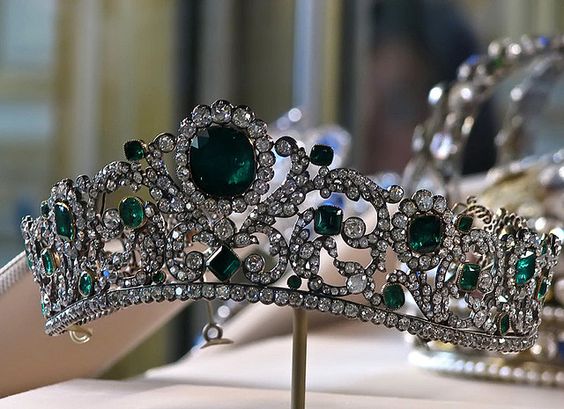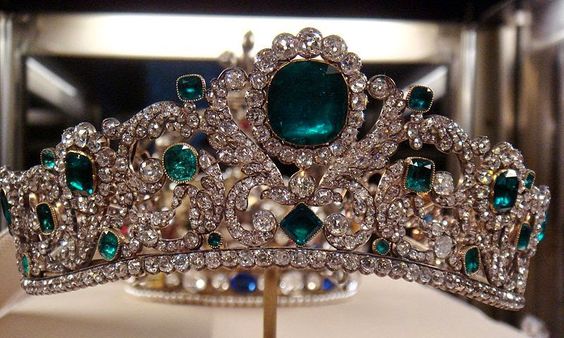This gorgeous tiara was made by Evrard and Frederic Bapst for the French crown jewels in 1820. There are 1031 diamonds and 40 emeralds in the setting.
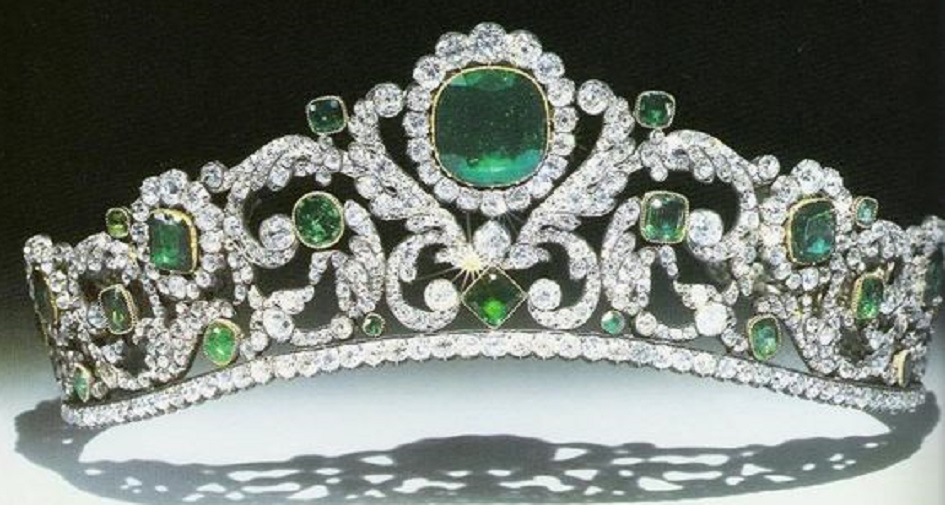
This diadem of emeralds and diamonds is a masterpiece of the jewelry of the Restoration. It enriches the collection of jewels of the Crown dispersed in 1887 and since patiently gathered by the department of Objects of art of the Louvre. Offered by Louis XVIII to his niece the Duchess of Angoulême, it is the work of Christophe-Frédéric Bapst and Jacques-Evrard Bapst, jewelers of the Crown until the Second Empire.
A work intended for a princess.
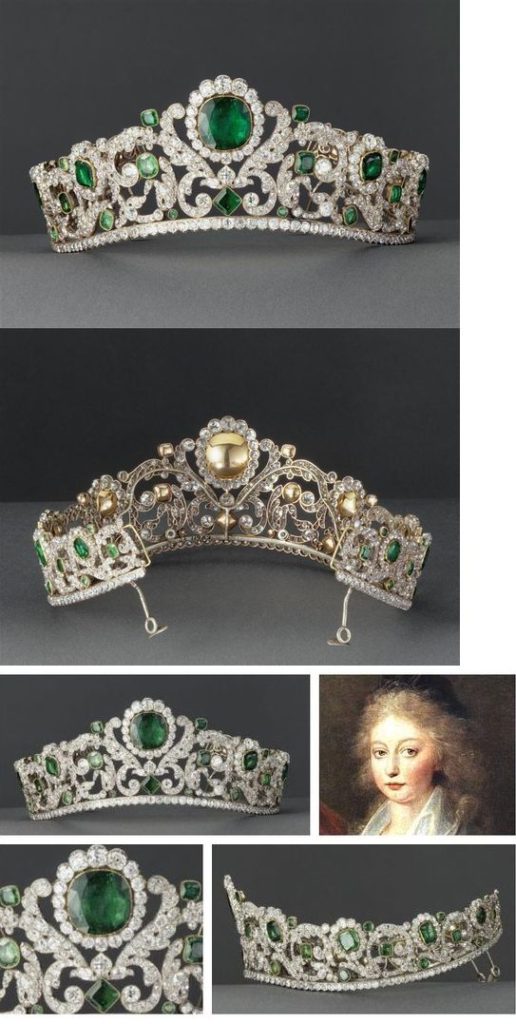
The duchess of Angouleme (1778-1851), daughter of Louis XVI and niece of Louis XVIII received this ornament from her uncle. She already possessed an ornament of emeralds delivered by the jeweler Paul-Nicolas Ménière as early as 1814. This set included a comb, a necklace, bracelets and earrings. The diadem, unlike the ornament, owned by the Duchess of Angoulême, is inscribed on the inventory of the Diamonds of the Crown. He uses four large emeralds bought by Louis XVIII and diamonds from the Crown collections. During the Second Empire, the diadem was worn by the Empress Eugenie, who particularly appreciated emeralds. Then it was sold with the other jewels of the Crown in 1887 before reappearing in a private collection.
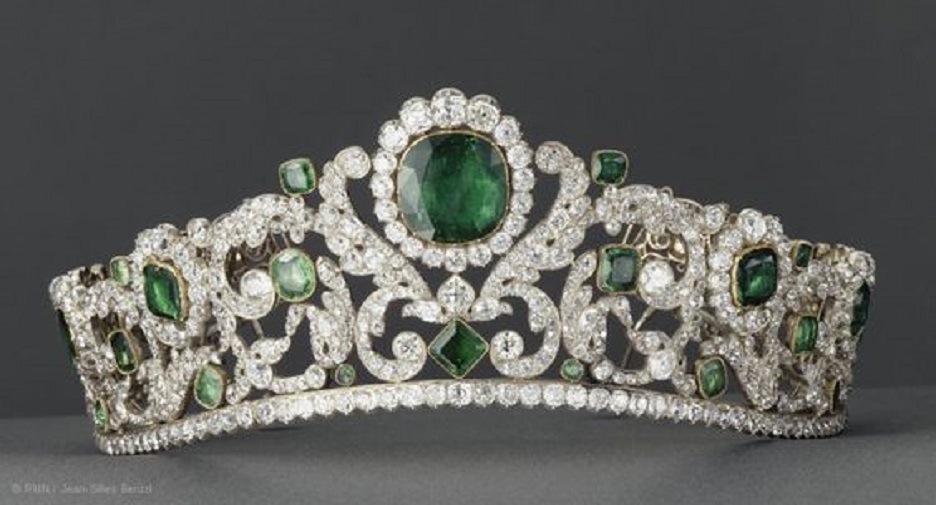 Part of the French Crown Jewels. Made for Marie-Therese, Duchesse d’Angouleme, daughter of Louis XVI and Marie Antoinette, in 1819-1820. Later worn by Empress Eugenie.[/caption]
Part of the French Crown Jewels. Made for Marie-Therese, Duchesse d’Angouleme, daughter of Louis XVI and Marie Antoinette, in 1819-1820. Later worn by Empress Eugenie.[/caption]
40 emeralds and 1031 diamonds In the center of the diadem, between two windings in brilliant, a large emerald is surrounded by 18 brilliants. This emerald of 15.93 carats, almost square and very thin, is accompanied by fourteen other emeralds, two of which are fixed on both sides. The two lateral emeralds make 14.19 c.m. And 14.3 c.m. The jewelers Bapst completed this set with 26 small emeralds for 29 carats. In total the diadem is composed of 40 emeralds and 1031 diamonds. The central emerald is surrounded by 18 brilliants. The other brilliants form scrolls of foliage on which are fixed the kittens supporting the emeralds. The whole on a gallery formed of a rank of brilliants.
